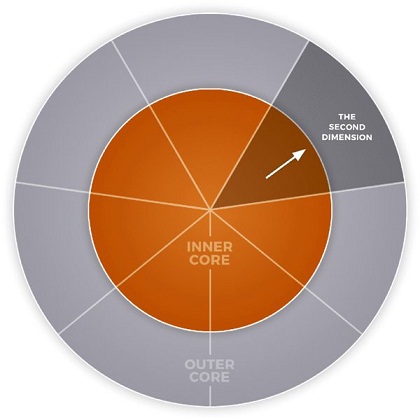CHAPTER 3 The Vulnerability Decision

When I was a kid, John Wayne was one of the biggest movie stars in the land. “The Duke,” as he was called, played the heroic lead in countless Westerns and war movies from the late 1930s through the 1960s, and cemented himself in the pantheon of American icons as the ultimate strongman. His influence was so broad that his name has, in many ways, become shorthand for being a “man’s man,” meaning someone who uses toughness and intimidation to get what he wants in the world, keeping thoughts and feelings to himself, and never showing weakness.
In his 2014 biography, John Wayne: The Life and Legend, Scott Eyman recounts a story that perfectly illuminates the role that Wayne played (and in some respects, continues to play) in society. At a party in 1957, it’s reported that Wayne confronted his fellow actor Kirk Douglas, a fellow “tough guy” famous for movies like Spartacus. Wayne was upset about Douglas’s decision to play the role of Vincent van Gogh—an artist who represented a more sensitive side of masculinity—in the film Lust for Life. He reportedly said, “Christ, Kirk, how can you play a part like that? There’s so goddamn few of us left. We got to play strong, tough characters.” Strength and toughness were, for the Duke, part of the identity he spent his life building, maintaining, and ultimately inspiring in millions of his fans.
The “John ...
Get The Intelligent Leader now with the O’Reilly learning platform.
O’Reilly members experience books, live events, courses curated by job role, and more from O’Reilly and nearly 200 top publishers.

